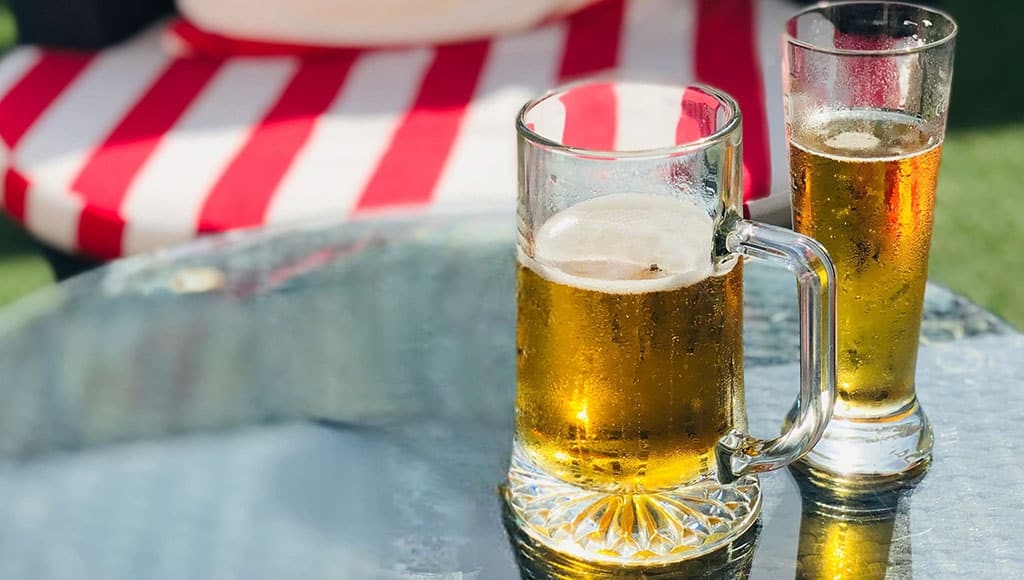For around 2.5 million years, humans sustained themselves by gathering plants and hunting animals that lived and bred in the wild. However, all that changed around 10,000 years ago when our ancestors began domesticating plants such as wheat, rice, potatoes, and of course, barley.
The origins of barley beer can be traced back to the Sumerians of ancient Mesopotamia (present-day Iraq), who worshipped Ninkasi – the goddess of brewing and beer. Archaeologists have unearthed ceramic vessels containing traces of beer, along with a tablet bearing a hymn to the goddess detailing the recipe for the ancient brew.
Similarly, beer was a daily staple in ancient Egypt, enjoyed by everyone from pharaohs to peasants, and children. The Egyptians brewed a thick, porridge-like beer, flavoured with herbs and spices, which played a significant role in the construction of the pyramids. Workers were paid with a daily ration of four to five litres, serving both as sustenance and refreshment.
During the Middle Ages, monks began brewing beers infused with hops, marking the commercialisation of the beverage and contributing to its distinct modern taste.
In the Age of Discovery, Portugal became a strategic point for global trade, with frequent arrivals of beer shipments at Portuguese ports from Germany, Flanders, and England. Despite these imports, beer remained primarily consumed by foreigners in Portugal, as the local population favoured wine during this era.
Today, beer stands as the most consumed alcoholic beverage in Portugal, with distinct regional terms for ordering. Across the country, “Sagres” and “Super Bock” dominate as the two major Portuguese beer brands. However, the size of the beer ordered is often what truly matters.
Ordering a pint is referred to as asking for a caneca (50cl of beer) which translates to “mug” in English. For those seeking a smaller draught beer (20cl), they ask for an imperial if in Lisbon or the South, or a fino in the North – especially in Coimbra and Porto.
Until 1916, Portugal housed a brewery named Germânia on Avenida Almirante Reis in Lisbon, producing the country’s first draught beer brand, Imperial. The brewery’s name and eagle logo were reminiscent of Imperial Germany and the beer was distributed in wooden barrels and served in taverns and pubs. However, due to the somewhat precarious distribution method involving carts, customers often visited the factory to fill their own barrels.
For this reason, the factory soon came up with an idea to open a space next door to serve draught beer while customers waited for their barrels to be filled and thus a new way of consuming beer in Portugal was born.
World War I prompted Germany to declare war on Portugal in 1916 due to Portugal’s alignment with the Allies, prompting anti-German sentiment that led the brewery to rebrand as Portugália.
Although imperial initially referred to a brand name, its popularity eventually transformed it into a generic term for a small draught beer served in a thin cylindrical glass. This evolution brings us to the alternative term fino, meaning “thin” in English.
The term is commonly used in the North and is said to have originated in Coimbra in the 1940s, attributed to Toninho Saraiva, a bohemian residing in the city of students. According to the memoir “Boémia Coimbrã”, by A. Nicolau da Costa, his drinking partner Toninho always requested a beer served in a thin glass cup, and the term became widely adopted over time.
In Portugal, there is also a clear preference for specific beer brands across the country. Super Bock, originating in Porto, is favoured in the North. Conversely, Sagres is favoured in the South and is also my personal favourite. Named after the coastal village in the Algarve, where Prince Henry the Navigator established a nautical school, Sagres’ origins are intertwined with the Portuguese World Exhibition held in Lisbon in 1940.
Its recipe is said to have originated from a Belgian soldier who was held prisoner by the Germans during World War II, and at the suggestion of the British, Portugal also began exporting Sagres to Gibraltar, as the British were unable to supply beer to their troops due to German attacks.
Over a century later, and Europe is no longer at war. Today, amidst peaceful times, and having finished this article, I can now go and enjoy a nice refreshing imperial. Scratch that, a nice refreshing caneca.
|| features@portugalresident.com
Jay works for a private charter airline, and is also a UX designer and aspiring author who enjoys learning about history and other cultures




















